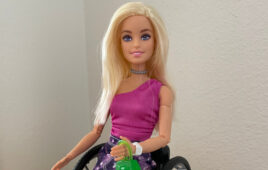Related Articles Read More >
Briefly: Health Canada Could Reconsider Masitinib; RESNA Goes Gaming
Featuring Health Canada, AB Science, and the Rehabilitation Engineering and Assistive Technology Society of North America.
VGM Updates Member Success Team
The member services organization announced a promotion and a new hire.
CMS Announces Medicaid Services Final Rule on Access
The final rule seeks to make Medicaid FFS rates more transparent for stakeholders.


